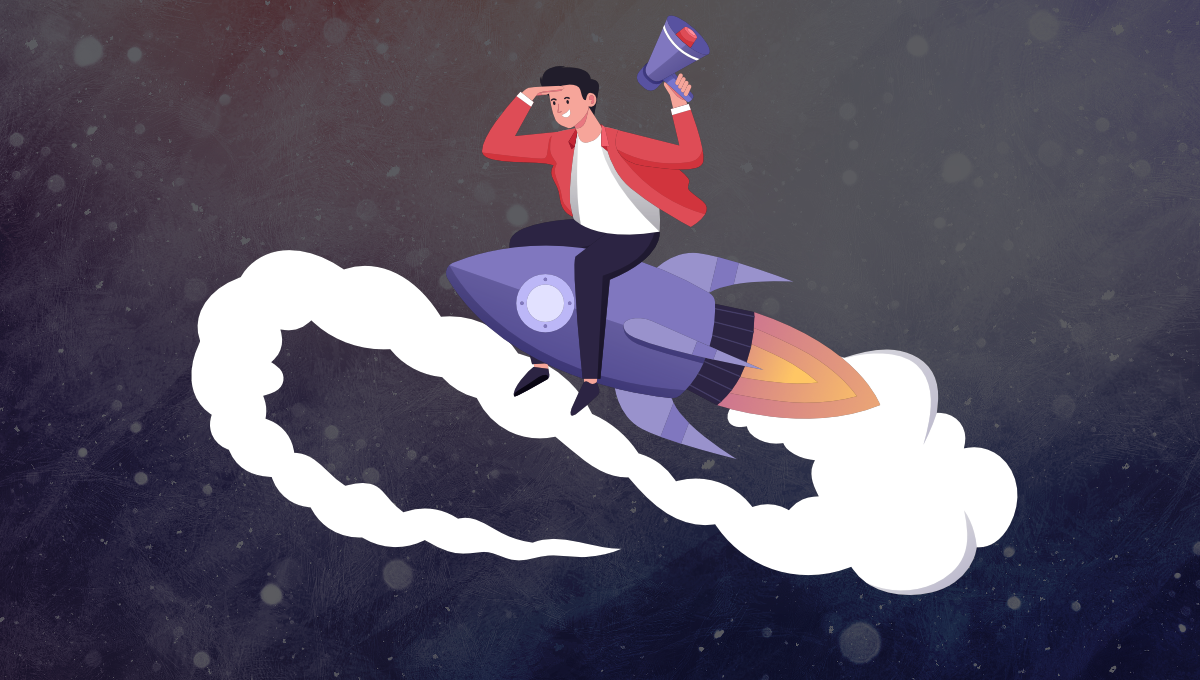How AI is Revolutionizing the US Economy
How AI is Revolutionizing the US Economy There’s a new titan in town, and it’s not just reshaping industries — it’s reinventing them. The rise of Artificial Intelligence (AI) isn’t a mere trend; it’s a seismic shift reverberating through every facet of the United States economy. From Silicon Valley to Wall Street, from hospitals to Hollywood, AI impact on US economy is as monumental as the Industrial Revolution once was.
Imagine a world where your groceries arrive before you realize you’re out of milk. Or where doctors catch diseases before symptoms even surface. This isn’t science fiction. It’s the power of AI, unfolding now.

A Glimpse at the Growth: The Trillion-Dollar Potential
Let’s talk numbers. According to PwC, AI could contribute over $15 trillion to the global economy by 2030, with the United States poised to snatch a sizable chunk of that pie. The AI impact on US economy is expected to manifest through productivity gains, personalized services, and the birth of entirely new sectors.
Businesses big and small are reaping rewards. From predictive algorithms helping retailers fine-tune their inventory to logistics firms slashing delivery times with machine learning, the efficiency boost is undeniable.
AI in the Workplace: Friend or Foe?
One of the most discussed consequences of AI is its impact on jobs. There’s plenty of hand-wringing around automation displacing workers — and that concern is valid. Yet, the flip side is equally powerful. AI isn’t just replacing jobs. It’s creating them.
Roles like AI ethicists, machine learning engineers, and data annotators didn’t exist a decade ago. Now, they’re among the hottest professions. The AI impact on US economy includes a reshuffling of labor — yes, some roles disappear, but many new ones emerge, often with higher pay and better growth trajectories.
Reinventing Healthcare with AI
The healthcare sector is experiencing a renaissance, thanks to AI. Algorithms are now capable of diagnosing conditions like skin cancer with accuracy rivaling — or even surpassing — seasoned dermatologists. Hospitals are leveraging AI to predict patient deterioration, optimize surgery schedules, and improve operational efficiency.
And it’s not just the fancy tools. AI is streamlining the back-office work, too — billing, coding, scheduling. The result? More time for doctors to spend with patients and better outcomes across the board.
This is a prime example of AI impact on US economy, where increased efficiency translates directly into lives saved and dollars earned.
Financial Services: Smarter, Faster, Fairer
The world of finance was among the earliest adopters of AI. High-frequency trading, fraud detection, and robo-advisors are now standard fare. But there’s more to the story.
AI is also helping democratize access to financial advice. Once the purview of the wealthy, personalized investment strategies are now available through apps that cater to anyone with a smartphone.
Loan approval processes are getting faster — and, when programmed ethically, fairer. By stripping away human bias (or at least balancing it), AI can help more Americans access credit and opportunity. This democratization is a significant AI impact on US economy, leveling the playing field for consumers and entrepreneurs alike.
Manufacturing: Precision at Scale
In America’s factories, the AI-powered Fourth Industrial Revolution is well underway. Predictive maintenance is reducing downtime. Robots, guided by AI, are learning tasks faster than ever before. Supply chains are being optimized in real-time based on weather data, fuel costs, and customer demand.
This new era of smart manufacturing doesn’t just mean cheaper goods. It also brings jobs back home. With automation making local production cost-competitive again, reshoring is gaining momentum.
AI impact on US economy includes reinvigorating manufacturing — a cornerstone of national prosperity — and restoring America’s industrial edge.
Retail and Consumer Experience: Tailored and Timely
Walk into a store, and there’s a good chance AI is working behind the scenes — analyzing foot traffic, adjusting inventory, even personalizing in-store ads in real time. Online, it’s even more prominent. From recommending products based on your taste to ensuring smooth checkouts, AI is elevating retail to dazzling new heights.
For consumers, the experience is more intuitive. For businesses, it’s more profitable. And when done responsibly, this data-driven personalization fosters loyalty and drives growth.
In short, AI impact on US economy includes creating happier customers and more agile retailers.
Transportation: On the Road to Autonomy
Self-driving cars may not be fully mainstream yet, but they’re no longer a sci-fi fantasy. Tesla, Waymo, and a slew of startups are racing toward a driverless future. Meanwhile, AI is already enhancing logistics. Route optimization, fuel efficiency, and fleet tracking are now data-driven.
Airlines use AI for scheduling and safety checks. Trains are managed more efficiently. The result? Lower emissions, reduced delays, and greater cost savings.
All of which underscore the AI impact on US economy in both macroeconomic and everyday ways.
Education: Personalized Learning for All
AI is reshaping the classroom. Platforms adapt to individual learning speeds. Virtual tutors are available 24/7. Teachers gain insight into student performance, enabling targeted interventions.
Higher education institutions are using AI for admissions, curriculum planning, and even academic research. This enhances quality and accessibility.
Education is the great equalizer — and AI is making it more effective and inclusive, another invaluable AI impact on US economy with long-term societal dividends.
Public Sector and Governance
Government agencies are adopting AI for tasks ranging from fraud detection to traffic management. Smart cities use AI to manage energy, waste, and water resources efficiently. Chatbots now assist with routine services like license renewals or benefit applications.
These improvements make governance more responsive and reduce costs, translating into better services for citizens.
When governments become smarter, everyone wins — and the AI impact on US economy becomes even more far-reaching.
The Ethical Imperative
With great power comes great responsibility. As AI weaves itself into the fabric of economic life, ethical concerns arise. Data privacy, surveillance, algorithmic bias — these issues demand attention.
The US is already setting standards, with legislation and public debates shaping a responsible AI future. Companies are also investing in ethical frameworks and fairness audits. The move toward explainable AI is accelerating.
Ensuring that AI impact on US economy is equitable and ethical is crucial for sustained progress.
Global Competition: America’s AI Arms Race
China, the EU, and others are sprinting in the AI race. But the US holds a competitive edge: world-class universities, dynamic startups, venture capital, and tech giants like Google and Microsoft.
To maintain leadership, America is investing in research, education, and strategic partnerships. National initiatives are being launched to secure AI talent and intellectual property.
Maintaining this edge ensures continued AI impact on US economy — and a powerful role in shaping global AI norms.
Small Businesses and Startups: Innovation’s Frontline
Startups are at the vanguard of AI innovation. From AI-driven HR platforms to agriculture tech, small companies are disrupting big markets. Access to cloud computing and open-source models has leveled the playing field.
Government grants and incubators are supporting this ecosystem. As these startups grow, so does the economy — with dynamism and diversity leading the charge.
The AI impact on US economy includes this bottom-up revolution, with local innovation fueling national growth.
Real Estate and Construction: Smarter, Faster, Greener
AI tools are helping assess property values, predict market trends, and automate complex paperwork. In construction, robots powered by AI are laying bricks, pouring concrete, and optimizing blueprints.
These innovations reduce waste, accelerate timelines, and enhance safety. Sustainable building is no longer a luxury — it’s becoming standard practice.
AI impact on US economy includes a smarter built environment, aligned with both economic and environmental goals.
The Road Ahead: What to Expect
As we move into the second half of the 2020s, AI’s economic role will only intensify. Think decentralized AI systems, edge computing, and generative models shaping industries from media to medicine.
Regulatory frameworks will evolve. Public-private collaboration will deepen. And citizens will interact with AI in ever more intuitive ways — often without realizing it.
What’s clear is this: the AI impact on US economy is no passing phase. It’s a paradigm shift.
Final Thoughts
The rise of AI is more than a technological phenomenon. It’s an economic revolution. One that’s lifting productivity, birthing industries, transforming jobs, and reimagining how we live, learn, heal, and build.
Handled wisely, AI can be America’s greatest ally in achieving prosperity, equality, and innovation for generations to come.
And the journey? Well, it’s only just begun.
If you’d like this article in a downloadable format or adapted for a newsletter, let me know!







